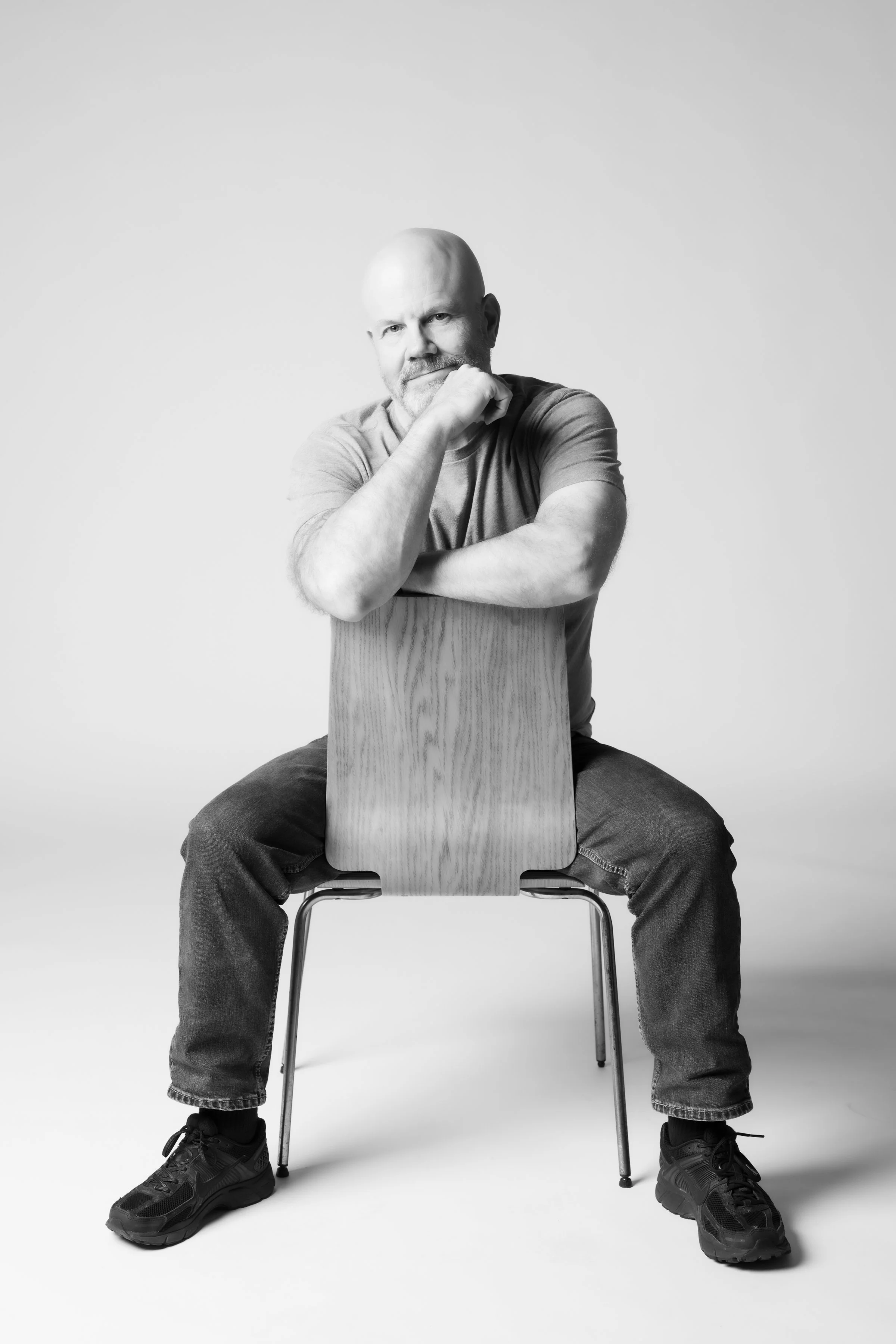
Craig Wetjen - Photographer, Studio Owner, Photography Educator,
Men’s Mental Health Advocate
Q: What first drew you into photography?
A: I started at 10, when my grandfather gave me a Billy 6x9 camera. From the beginning it felt natural, like an extension of my mind. I loved the surprise of capturing something and then seeing it appear when developed.
Q: Was photography always your career path?
A: Yes. I studied Industrial Scientific Photography at the Brooks Institute in California. Through a teacher, Vern Miller, I got an internship at NASA, photographing satellite parts for the Cassini project and Mars Pathfinder. It was incredible, and digital photography was just beginning.
Q: Why didn’t you stay at NASA?
A: They offered me a job, but I wanted something different. I had this vision of working commercially and running my own studio. I also came to Australia to do a master’s degree and ended up introducing the country’s first digital photography course.
Q: And your wife is Australian?
A: Yes. We met in Brisbane at the Down Under Bar. It’s a cliché story but true — and nearly 30 years later, we’re still together.
Q: How did your career evolve here?
A: I taught at RMIT and later Monash, eventually running the photography department. But I always wanted independence, so I left and started a wedding and portrait business.
Q: Where did the idea for Men and their Sheds come from?
A: After the GFC I was looking for new projects. I began photographing men in their backyard sheds, thinking it might have commercial appeal. Around then I had a breakdown and discovered I had chronic lymphatic leukaemia. That diagnosis shifted everything — the project became about men’s mental and physical wellbeing, not money.
Q: You seemed nervous when you first started speaking publicly about it.
A: I was terrified, but the project took on a life of its own. I travelled all over, met amazing people, and realised, as someone once said to me: people don’t buy what you do, they buy why you do it. The book ended up selling 20,000 copies — far more than I ever expected.
Q: More recently you’ve faced another health scare.
A: Yes, they suspected pancreatic cancer. Facing that possibility changes everything. It made me stop worrying about business and just go for things. Life is fragile.
Q: Is that what led to the Photography Walks for Wellbeing?
A: Exactly. Walking with a camera clears the mind. I started the walks to help people connect and focus on the present. Six years later, it’s spread beyond Melbourne and become a real community.
Q: You were very close with Steve Scalone (see other entry). How did his loss affect you?
A: It was devastating. Steve was a brilliant photographer and teacher, but more than that, one of the kindest, most beautiful people I’ve known. He lit up every room. Even in his final days, he was upbeat and thinking of others. I still have all our texts — our last exchange was just days before he passed.
I carry his perspective with me. He had such a unique way of seeing the world, and that stays with me every day. People come into your life for a reason. Steve did — and so have so many others through these walks. That’s what keeps me going.